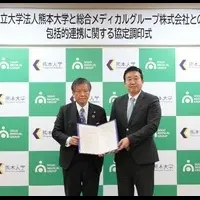
SNB-101: A Breakthrough Therapy for Small Cell Lung Cancer Gains Government Support
SNB-101: A Promising Solution Against Small Cell Lung Cancer
In a major development for cancer treatment, SN BioScience has announced that its leading investigational drug, SNB-101, has received endorsement as part of the 2025 Korea Drug Development Project. This initiative is a government-led program orchestrated by the Korea Drug Development Fund (KDDF), aimed at bolstering the drug development process in both academic settings and the pharmaceutical industry.
Significance of Governing Endorsement
The KDDF's backing is a strong indicator of SNB-101's potential. This national funding will aid in advancing the drug through critical phases of clinical trials over the next two years, ultimately supporting its progression into global Phase 1b/2 trials.
Aimed primarily at tackling small cell lung cancer (SCLC), SNB-101 is a polymeric nanoparticle-based formulation of SN-38, a potent metabolite of the well-known cancer drug irinotecan. This particular formulation utilizes SN BioScience's proprietary dual nanomicelle platform, ensuring that the drug effectively targets tumors while minimizing harmful effects on healthy tissues.
Recognized Approach and Regulatory Designations
SNB-101 has already made waves internationally, receiving several regulatory designations. Notably, the U.S. FDA has classified the drug as an Orphan Drug for both small cell lung cancer and pancreatic cancer, and has granted it Fast Track Designation specifically for SCLC. This regulatory support facilitates expedited progress in its development timeline, bringing it one step closer to the market.
The anticipated Phase 1b/2 clinical trials will be pivotal, as they encompass critical assessments of dosage, safety, and efficacy of SNB-101 in patients diagnosed with extensive-stage small cell lung cancer (ES-SCLC). The trials will take place across multiple international sites, including South Korea, the United States, and Europe, aiming for diverse patient participation to support informative and inclusive results as part of the early commercialization plan.
Future Prospects
Given the aggressive characteristics of ES-SCLC and the bleak prognosis for many patients, SNB-101 holds promise as a potential treatment for those who have exhausted existing options. Furthermore, SN BioScience is investigating combination therapies with immunotherapies, with aspirations of establishing SNB-101 as a standard first- or second-line treatment in future clinical practice.
Young-Hwan Park, CEO of SN BioScience, remarked on the implications of this grant: "SNB-101 epitomizes our drive to innovate beyond the traditional scopes of cancer treatment. This national support will not only expedite our global clinical ambitions but also reinforce SNB-101's emerging reputation as a next-generation anticancer therapy."
As momentum builds around SNB-101, it represents a beacon of hope for many patients grappling with the challenges of small cell lung cancer. With substantial backing and robust research implications, SNB-101 could change the landscape of cancer therapies, reinforcing the critical need for continuous innovation in the fight against this formidable disease.
Topics Health)










【About Using Articles】
You can freely use the title and article content by linking to the page where the article is posted.
※ Images cannot be used.
【About Links】
Links are free to use.